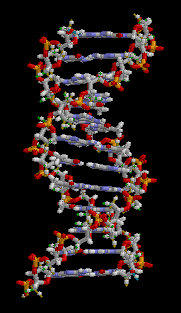Femtosecond to millisecond time-resolved spectroscopy of DNA pi-stacking in bulk and confined in microfluidic chips

Knowing the exact mechanism of DNA damage that results in malignant melanoma is of vital importance for developing preventive measures and treatments. Sometimes the safe mechanisms fail to function, for example when the pi-stacking of too many nearby nucleobases is disrupted, leading to dimerization (pyrimidine dimers formation). The degree of pi-stacking disruption can be investigated effectively with ultrafast time-resolved spectroscopy, where adding the extra dimension of time to the experimental data helps in disentangling information from different molecular mechanisms which otherwise appear mixed. So far, due to the limitations of the pulsed laser technology, no study has been performed at the very first few-femtosecond dynamics of the electronic excitation in double-stranded DNA molecules. Moreover, the studies in literature, have been almost exclusively done in bulk (e.g., many molecules in solution), with the significant drawback that one has an inherently inhomogeneous statistics of DNA molecules. Not just in the secondary conformation typical of biologically relevant molecules, but also the length (DNA fragments) and errors in the sequence of nucleobases. On top of this, there is virtually no possibility to control with absolute certainty the degree of pi-stacking, that is, the distance and relative position between the nucleobases of DNA. With this project, we want to address these three issues: the few-femtosecond time-scale of DNA electronic states, the inhomogeneous statistics of DNA molecules, and the inability to control the degree of pi-stacking. We will do so, by utilizing the unique 2-femtosecond UV pulses generated in the laboratory of Dr. Erik Månsson and Gaia Giovannetti, and by confining the DNA molecules in micro- and nanofluidic chips produced in the group of Dr. Irene Fernandez-Cuesta. With fluidic chips, we can isolate and stretch the DNA by various degrees, with designed geometric constrains of the fluidic chips. In this way, we can control the DNA conformation (the pi-stacking degree), molecule by molecule. These chips will be utilized in the time-resolved laser spectroscopy setups in the laboratories at DESY and in HARBOR, to investigate the effect of pi-stacking disruption on DNA pyrimidine dimers formation, difficult in normal bulk spectroscopy. The time-resolved spectroscopy experiment on confined DNA in nanochannels will be the first of its type to be performed, and a proof-of-principle of the true-single particle laser spectroscopy technique.




